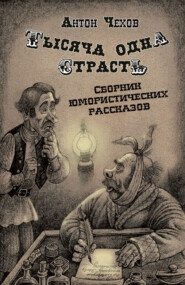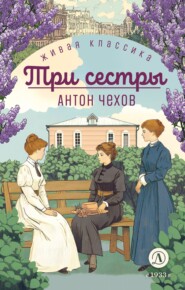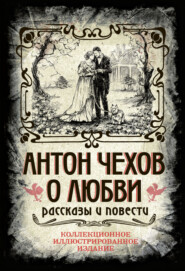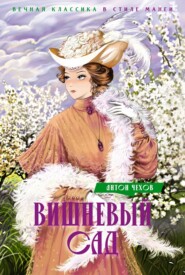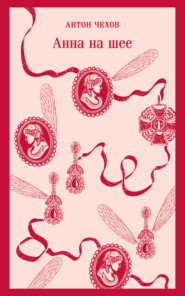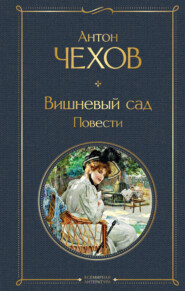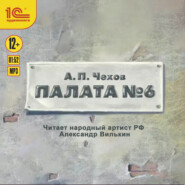По всем вопросам обращайтесь на: info@litportal.ru
(©) 2003-2025.
✖
The Darling and Other Stories
Настройки чтения
Размер шрифта
Высота строк
Поля
The priest and the deacon began putting on their vestments. A censer was brought in, giving off sparks and fumes of incense and charcoal. The candles were lighted. The clerks walked into the drawing-room on tiptoe and stood in two rows along the wall. There was perfect stillness, no one even coughed.
"The blessing of God," began the deacon. The service was read with great solemnity; nothing was left out and two canticles were sung – to sweetest Jesus and the most Holy Mother of God. The singers sang very slowly, holding up the music before them. Laptev noticed how confused his wife was. While they were singing the canticles, and the singers in different keys brought out "Lord have mercy on us," he kept expecting in nervous suspense that the old man would make some remark such as, "You don't know how to cross yourself," and he felt vexed. Why this crowd, and why this ceremony with priests and choristers? It was too bourgeois. But when she, like the old man, put her head under the gospel and afterwards several times dropped upon her knees, he realised that she liked it all, and was reassured.
At the end of the service, during "Many, many years," the priest gave the old man and Alexey the cross to kiss, but when Yulia went up, he put his hand over the cross, and showed he wanted to speak. Signs were made to the singers to stop.
"The prophet Samuel," began the priest, "went to Bethlehem at the bidding of the Lord, and there the elders of the town with fear and trembling asked him: 'Comest thou peaceably?' And the prophet answered: 'Peaceably: I am come to sacrifice unto the Lord: sanctify yourselves and come with me to the sacrifice.' Even so, Yulia, servant of God, shall we ask of thee, Dost thou come bringing peace into this house?"
Yulia flushed with emotion. As he finished, the priest gave her the cross to kiss, and said in quite a different tone of voice:
"Now Fyodor Fyodorovitch must be married; it's high time."
The choir began singing once more, people began moving, and the room was noisy again. The old man, much touched, with his eyes full of tears, kissed Yulia three times, made the sign of the cross over her face, and said:
"This is your home. I'm an old man and need nothing."
The clerks congratulated her and said something, but the choir was singing so loud that nothing else could be heard. Then they had lunch and drank champagne. She sat beside the old father, and he talked to her, saying that families ought not to be parted but live together in one house; that separation and disunion led to permanent rupture.
"I've made money and the children only do the spending of it," he said. "Now, you live with me and save money. It's time for an old man like me to rest."
Yulia had all the time a vision of Fyodor flitting about so like her husband, but shyer and more restless; he fussed about her and often kissed her hand.
"We are plain people, little sister," he said, and patches of red came into his face as he spoke. "We live simply in Russian style, like Christians, little sister."
As they went home, Laptev felt greatly relieved that everything had gone off so well, and that nothing outrageous had happened as he had expected. He said to his wife:
"You're surprised that such a stalwart, broad-shouldered father should have such stunted, narrow-chested sons as Fyodor and me. Yes; but it's easy to explain! My father married my mother when he was forty-five, and she was only seventeen. She turned pale and trembled in his presence. Nina was born first-born of a comparatively healthy mother, and so she was finer and sturdier than we were. Fyodor and I were begotten and born after mother had been worn out by terror. I can remember my father correcting me-or, to speak plainly, beating me-before I was five years old. He used to thrash me with a birch, pull my ears, hit me on the head, and every morning when I woke up my first thought was whether he would beat me that day. Play and childish mischief was forbidden us. We had to go to morning service and to early mass. When we met priests or monks we had to kiss their hands; at home we had to sing hymns. Here you are religious and love all that, but I'm afraid of religion, and when I pass a church I remember my childhood, and am overcome with horror. I was taken to the warehouse as soon as I was eight years old. I worked like a working boy, and it was bad for my health, for I used to be beaten there every day. Afterwards when I went to the high school, I used to go to school till dinner-time, and after dinner I had to sit in that warehouse till evening; and things went on like that till I was twenty-two, till I got to know Yartsev, and he persuaded me to leave my father's house. That Yartsev did a great deal for me. I tell you what," said Laptev, and he laughed with pleasure: "let us go and pay Yartsev a visit at once. He's a very fine fellow! How touched he will be!"
VII
On a Saturday in November Anton Rubinstein was conducting in a symphony concert. It was very hot and crowded. Laptev stood behind the columns, while his wife and Kostya Kotchevoy were sitting in the third or fourth row some distance in front. At the very beginning of an interval a "certain person," Polina Nikolaevna Razsudin, quite unexpectedly passed by him. He had often since his marriage thought with trepidation of a possible meeting with her. When now she looked at him openly and directly, he realised that he had all this time shirked having things out with her, or writing her two or three friendly lines, as though he had been hiding from her; he felt ashamed and flushed crimson. She pressed his hand tightly and impulsively and asked:
"Have you seen Yartsev?"
And without waiting for an answer she went striding on impetuously as though some one were pushing her on from behind.
She was very thin and plain, with a long nose; her face always looked tired, and exhausted, and it seemed as though it were an effort to her to keep her eyes open, and not to fall down. She had fine, dark eyes, and an intelligent, kind, sincere expression, but her movements were awkward and abrupt. It was hard to talk to her, because she could not talk or listen quietly. Loving her was not easy. Sometimes when she was alone with Laptev she would go on laughing for a long time, hiding her face in her hands, and would declare that love was not the chief thing in life for her, and would be as whimsical as a girl of seventeen; and before kissing her he would have to put out all the candles. She was thirty. She was married to a schoolmaster, but had not lived with her husband for years. She earned her living by giving music lessons and playing in quartettes.
During the ninth symphony she passed again as though by accident, but the crowd of men standing like a thick wall behind the columns prevented her going further, and she remained beside him. Laptev saw that she was wearing the same little velvet blouse she had worn at concerts last year and the year before. Her gloves were new, and her fan, too, was new, but it was a common one. She was fond of fine clothes, but she did not know how to dress, and grudged spending money on it. She dressed so badly and untidily that when she was going to her lessons striding hurriedly down the street, she might easily have been taken for a young monk.
The public applauded and shouted encore.
"You'll spend the evening with me," said Polina Nikolaevna, going up to Laptev and looking at him severely. "When this is over we'll go and have tea. Do you hear? I insist on it. You owe me a great deal, and haven't the moral right to refuse me such a trifle."
"Very well; let us go," Laptev assented.
Endless calls followed the conclusion of the concert. The audience got up from their seats and went out very slowly, and Laptev could not go away without telling his wife. He had to stand at the door and wait.
"I'm dying for some tea," Polina Nikolaevna said plaintively. "My very soul is parched."
"You can get something to drink here," said Laptev. "Let's go to the buffet."
"Oh, I've no money to fling away on waiters. I'm not a shopkeeper."
He offered her his arm; she refused, in a long, wearisome sentence which he had heard many times, to the effect that she did not class herself with the feebler fair sex, and did not depend on the services of gentlemen.
As she talked to him she kept looking about at the audience and greeting acquaintances; they were her fellow-students at the higher courses and at the conservatorium, and her pupils. She gripped their hands abruptly, as though she were tugging at them. But then she began twitching her shoulders, and trembling as though she were in a fever, and at last said softly, looking at Laptev with horror:
"Who is it you've married? Where were your eyes, you mad fellow? What did you see in that stupid, insignificant girl? Why, I loved you for your mind, for your soul, but that china doll wants nothing but your money!"
"Let us drop that, Polina," he said in a voice of supplication. "All that you can say to me about my marriage I've said to myself many times already. Don't cause me unnecessary pain."
Yulia Sergeyevna made her appearance, wearing a black dress with a big diamond brooch, which her father-in-law had sent her after the service. She was followed by her suite-Kotchevoy, two doctors of their acquaintance, an officer, and a stout young man in student's uniform, called Kish.
"You go on with Kostya," Laptev said to his wife. "I'm coming later."
Yulia nodded and went on. Polina Nikolaevna gazed after her, quivering all over and twitching nervously, and in her eyes there was a look of repulsion, hatred, and pain.
Laptev was afraid to go home with her, foreseeing an unpleasant discussion, cutting words, and tears, and he suggested that they should go and have tea at a restaurant. But she said:
"No, no. I want to go home. Don't dare to talk to me of restaurants."
She did not like being in a restaurant, because the atmosphere of restaurants seemed to her poisoned by tobacco smoke and the breath of men. Against all men she did not know she cherished a strange prejudice, regarding them all as immoral rakes, capable of attacking her at any moment. Besides, the music played at restaurants jarred on her nerves and gave her a headache.
Coming out of the Hall of Nobility, they took a sledge in Ostozhenka and drove to Savelovsky Lane, where she lodged. All the way Laptev thought about her. It was true that he owed her a great deal. He had made her acquaintance at the flat of his friend Yartsev, to whom she was giving lessons in harmony. Her love for him was deep and perfectly disinterested, and her relations with him did not alter her habits; she went on giving her lessons and wearing herself out with work as before. Through her he came to understand and love music, which he had scarcely cared for till then.
"Half my kingdom for a cup of tea!" she pronounced in a hollow voice, covering her mouth with her muff that she might not catch cold. "I've given five lessons, confound them! My pupils are as stupid as posts; I nearly died of exasperation. I don't know how long this slavery can go on. I'm worn out. As soon as I can scrape together three hundred roubles, I shall throw it all up and go to the Crimea, to lie on the beach and drink in ozone. How I love the sea-oh, how I love the sea!"
"You'll never go," said Laptev. "To begin with, you'll never save the money; and, besides, you'd grudge spending it. Forgive me, I repeat again: surely it's quite as humiliating to collect the money by farthings from idle people who have music lessons to while away their time, as to borrow it from your friends."
"I haven't any friends," she said irritably. "And please don't talk nonsense. The working class to which I belong has one privilege: the consciousness of being incorruptible-the right to refuse to be indebted to wretched little shopkeepers, and to treat them with scorn. No, indeed, you don't buy me! I'm not a Yulitchka!"
Laptev did not attempt to pay the driver, knowing that it would call forth a perfect torrent of words, such as he had often heard before. She paid herself.
She had a little furnished room in the flat of a solitary lady who provided her meals. Her big Becker piano was for the time at Yartsev's in Great Nikitsky Street, and she went there every day to play on it. In her room there were armchairs in loose covers, a bed with a white summer quilt, and flowers belonging to the landlady; there were oleographs on the walls, and there was nothing that would have suggested that there was a woman, and a woman of university education, living in it. There was no toilet table; there were no books; there was not even a writing-table. It was evident that she went to bed as soon as she got home, and went out as soon as she got up in the morning.
The cook brought in the samovar. Polina Nikolaevna made tea, and, still shivering-the room was cold-began abusing the singers who had sung in the ninth symphony. She was so tired she could hardly keep her eyes open. She drank one glass of tea, then a second, and then a third.
"And so you are married," she said. "But don't be uneasy; I'm not going to pine away. I shall be able to tear you out of my heart. Only it's annoying and bitter to me that you are just as contemptible as every one else; that what you want in a woman is not brains or intellect, but simply a body, good looks, and youth… Youth!" she pronounced through her nose, as though mimicking some one, and she laughed. "Youth! You must have purity, _reinheit! reinheit!_" she laughed, throwing herself back in her chair. "_Reinheit!_"
When she left off laughing her eyes were wet with tears.
"You're happy, at any rate?" she asked.
"No."
"Does she love you?"
Laptev, agitated, and feeling miserable, stood up and began walking about the room.






